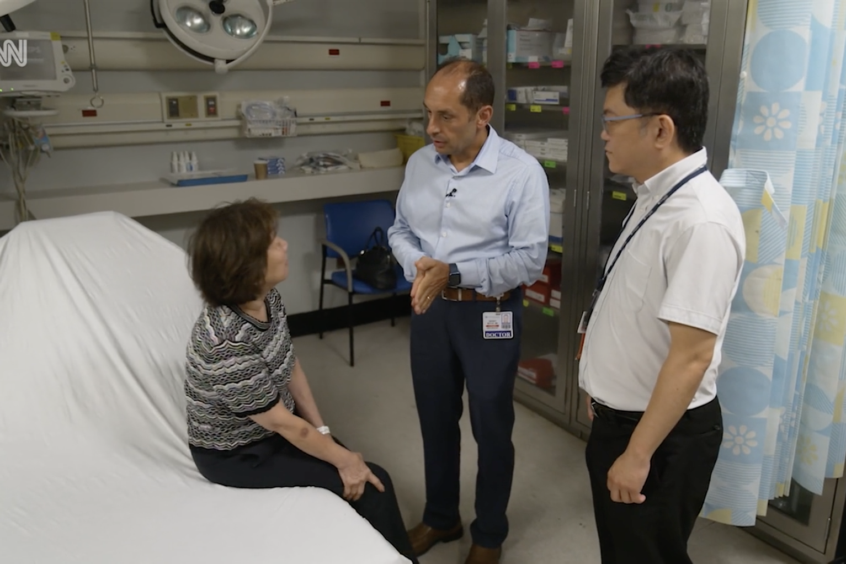Maimonides Medical Center’s Emergency Department and Level 1 Trauma Center may appear similar to many emergency care facilities across the country, but our new approach to pain management is not.
“Opioids is one of our therapies, but we take a lot of pride here in offering a wide variety of pain modalities,” says Luke Weber, MD, an ER shift leader at Maimonides.
Our new approach to safer, effective pain management, pioneered by emergency medicine physician and researcher Sergey Motov, MD, is called “opioid optimization.”
Dr. Motov explains, “We decided to use non-opioid analgesic as the primary analgesic of choice, obviously with the patient’s agreement. We resort to opioids only as a rescue.”
One type of non-opioid pain therapy we routinely offer is a nerve block, for which a doctor injects an anesthetic close to a group of nerves near the site of injury. This blocks those nerves from sending pain signals to the brain. The localized treatment provides medication only where it is needed, minimizing the potential for negative side effects. And pain relief can last for hours.
In many emergency care settings, opioids are still a first-response treatment for pain management, but Dr. Weber says Maimonides “is working to change that paradigm.”
About Maimonides Health
Maimonides Health is Brooklyn’s largest healthcare system, providing more than 1 million patient visits each year through the system’s three hospitals, 1,800+ physicians, and more than 80 community-based practices and outpatient centers. Our system is anchored by Maimonides Medical Center, one of the nation’s largest independent teaching hospitals and home to centers of excellence in numerous specialties; Maimonides Midwood Community Hospital (formerly New York Community Hospital), a 130-bed adult medical–surgical hospital; and Maimonides Children’s Hospital, Brooklyn’s only children’s hospital and only pediatric trauma center.
Maimonides’ clinical programs rank among the best in the country for patient outcomes, including our Heart and Vascular Institute, Neurosciences Institute, Bone and Joint Center, and Cancer Center. For additional information, please visit www.maimo.org and follow us on LinkedIn, X, Instagram, and Facebook, YouTube, and TikTok.

